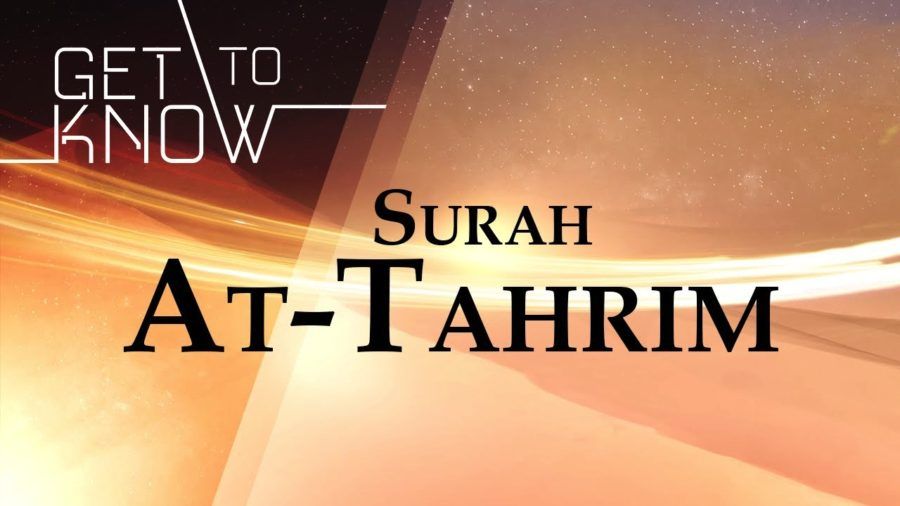
Get to Know Surat At-Tahrim – With Brother Nouman
This is the 66th Surah of the Quran, and according to many the last in the order of the Quran that is of the madani surahs.
The following surah, Surat Al-Mulk, till the end are predominantly Makkah Quran.
Get to Know a Surah of the Quran is a new series of videos brother Nouman Ali Khan presented this year during the month of Ramadan.
The following is a summary of some of the most important points and reflections brother Nouman mentioned in this seventeenth episode.
Introduction
This surah is very unique.
It’s got stories that are not mentioned anywhere else, and references and subject matters that have not been combined in a way that have been combined in this very brief 12 ayah surah.
I will start by giving you an illustration of how things are organized inside this surah that helps us appreciate the subject matter.
In the beginning of the surah, the Prophet, peace be upon him, immediately is addressed, which is interesting as he will be addressed again towards the end of the surah, (O Prophet) again:
{O Prophet, why do you prohibit [yourself from] what Allah has made lawful for you, seeking the approval of your wives? And Allah is Forgiving and Merciful.} (66:1)
So Prophet, exclamation mark… Prophet, exclamation mark.
And then Allah will tell him something.
Why Prohibit the Halal?
In the first case He tells him {why do you prohibit [yourself from] what Allah has made lawful for you, seeking the approval of your wives? And Allah is Forgiving and Merciful.}
It’s the other way round, you normally think that something is punishable.
If you think that something Allah has forbidden and you make it permissible, then Allah will say that Allah will forgive, if that happened before don’t do it again.
But it’s the flip…
Something was already permissible, the Prophet did not indulge in it, the Prophet does not take it, and Allah says Allah will forgive.
How is that even a crime?
Assume somebody does not like chicken.
Chicken is completely permissible, but the fact that they don’t eat chicken isn’t a crime.
You can’t say it’s halal, eat!
All you do is say I don’t like it. I don’t have to eat it.
On the other hand, somebody likes alcohol.
It doesn’t matter how much you like it, you can’t consume it because it’s haram.
Role Model
So when you take something permissible and you don’t consume it, that’s not a crime.
But in this case, Allah is saying why are you denying yourself? Why are you forbidding yourself that which Allah has made permissible?
I am completely within my rights in Islam to deny myself anything that Allah has made permissible.
That’s not a crime.
So why is it then that something that the Prophet is being reprimanded about?
The reason for that is that he is our permanent role model.
So when he, even on personal preference, decides not to do something, we are not going to think of it as his personal preference.
We, his followers and his lovers, his loyals, a member of this Ummah is going to look at everything he did and say he did this because of his love for Allah.
So if he doesn’t eat something, or doesn’t drink something, or doesn’t do something, there must be something wrong with that thing.
I can’t eat it either. He didn’t eat it either.
So, he might be leaving a legacy that Allah never intended to leave, so Allah has to put a tougher standard on him, and say you have to take things easier on yourself, because if you don’t, your followers will be too hard on themselves.
And Allah doesn’t want that harshness to trickle down on the entire Ummah.
What an amazing responsibility the Prophet has been given, peace be upon him, to even go easy on himself for our sake, for your sake and my sake.
And Allah will even reprimand him for us to take care of generations and generations to come.
The mercy of Allah on us, and the responsibility illustrated on the Prophet, peace be upon him…
To find out more reflections and details on this surah explained by brother Nouman and how the Surah concludes, and to watch the full episode, please click here.

